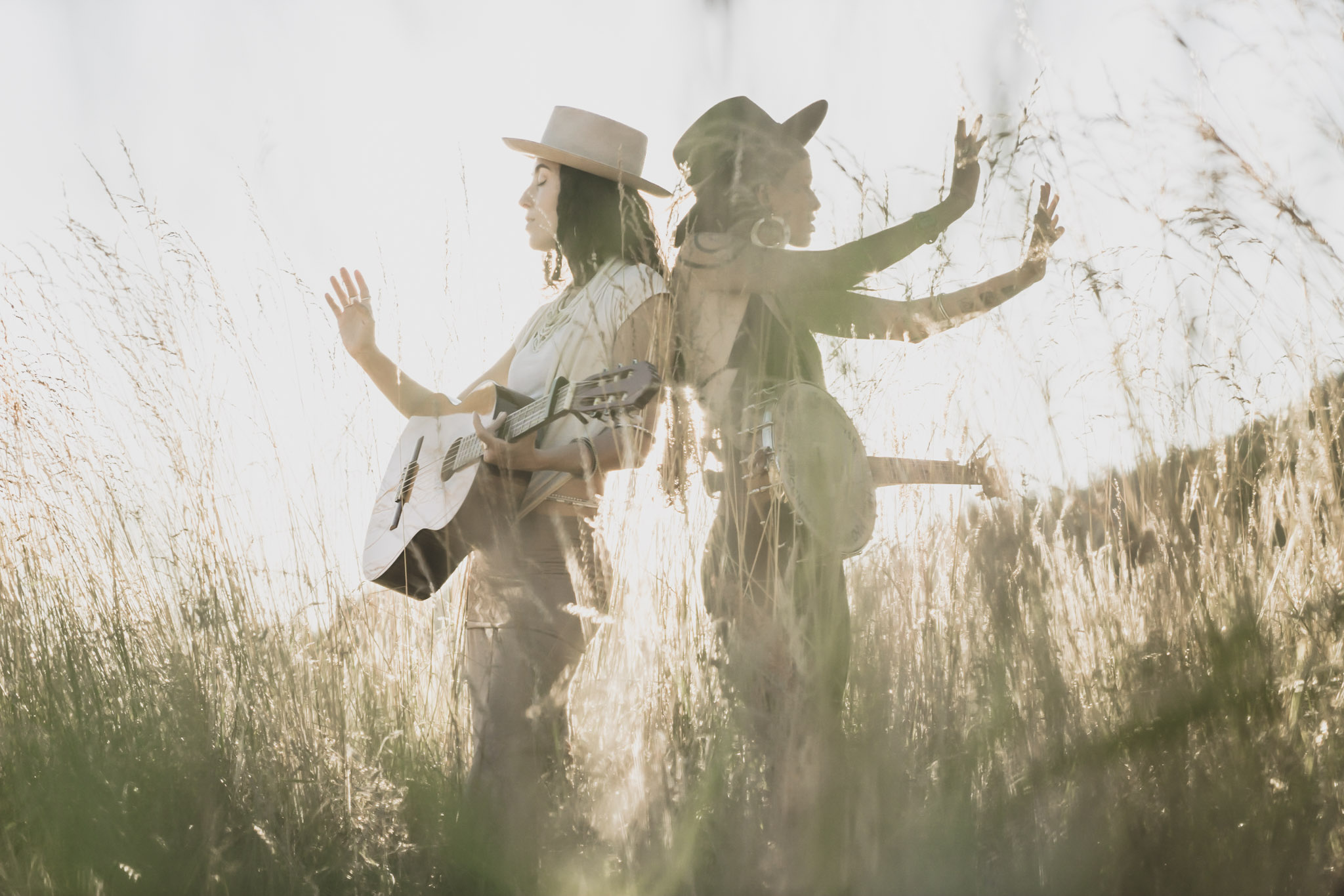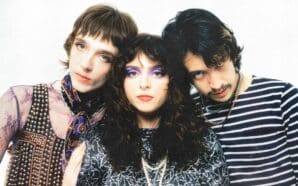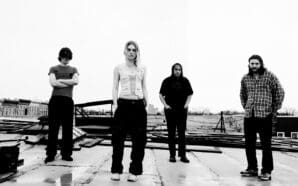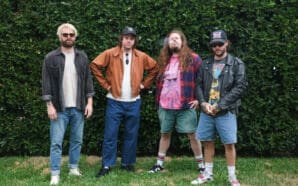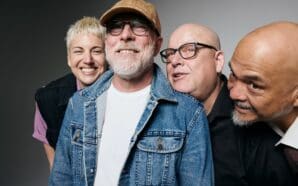We’ve always been big fans of “sister acts” here at PHILTHY and there’s none that we’re more excited about at the moment than World-Folk duo Rising Appalachia, led by sisters Chloe Smith and Leah Song. The band have been making music for more than a decade and are currently touring behind their latest LP, Leylines, which dropped this May and has received glowing praise from a number of major outlets. The sisters are currently wrapping up a year of heavy touring and they’ll be headlining our very own World Café Live this Thursday, November 21st. I recently got a chance to chat with Chloe Smith, one-half of Rising Appalachia, about the band’s history and inspirations.
Izzy Cihak: So, I realize this is kind of hokey, but whenever I’m interviewing “sister acts,” I always have to ask if you have any particular favorite “sister acts” (“or step-sister acts”) from music history? I always defer to The Breeders and Throwing Muses, but I feel like Haim, The Staves, Larkin Poe, and Lily & Madeleine have been doing some pretty cool stuff more recently, as well.
Chloe Smith: I think that’s a great question, and actually one we have not been asked before. We love the duo Ibeyi that is performing some incredible Afro-Cuban soul music right now around the world. We learned some of our first ballads from these sisters named Susanna and Georgia Rose, who sadly only made one recording. Our mother played a lot of the Staple Singers for us growing up, which was hugely influential.
Izzy: What would you tell your fans and potential fans about both your process of creating art and your aim as artists? I know you work in a lot of projects outside of the immediate world of the music industry, but that you also take inspiration from many relatively disparate places… I realize that’s kind of more than one question…
Chloe: Well, we are a woman-led project (sister-led, to be more exact), so there is not a linear aim as much as a cast net of goals, muses, and dreams for this project. We have always wanted to merge protest music (for lack of a better term) with traditional music, low-end crunk southern bass music with fiddle tunes, and world instrumentation with original songwriting. Now that we have this full six-piece band, those things are happening in a deeper and more well-woven way than ever. Indeed, we are inspired by the places we travel in this world… but equally from the places we each come from. We come from Atlanta, Tennessee, North Carolina, and Burkina Faso.
Izzy: Is there any one artistic scene or movement that you think is particularly central to your identity? Or, for that matter, social movement?
Chloe: Nope… not one in particular. We are a proud conglomeration of influence, style, and movement.
Izzy: Do you have any prominent influences or inspirations that you suspect would be surprising to your fans?
Chloe: The writing of Leonard Cohen, Ani Difranco, Mary Oliver, and Rumi. The singing of Hozier, Ulali, Masego, the Wailing Jennys, and Rokia Traore. The playing of Tinariwen, Bassekou Kouyate, Bruce Molsky, and Martin Hayes.
Izzy: I’m also a big fan of your music videos and your sense of fashion, both of which seem to also be inspired by other eras of artistry, or at least outside of the immediate contemporary mainstream. What are some of the things that the visual elements of your work draw inspiration from?
Chloe: We have always drawn a lot of both musical as well as costume influence from our seven years living in New Orleans, a city that takes dapper to a whole other level and makes magic and mischief out of ruin. We costumed at least five times a year when we lived down there, making colorful get ups out of anything we could find and parading the streets with our friends and neighbors. Our stage look is much more tame, but we always call in the spirit of New Orleans for every show.
Izzy: Your latest album, Leylines, has received a lot of critical acclaim. Have you had any particular favorite reactions to it, whether from critics, audiences, fans, or just friends or family? (I understand that this project originally started as a gift of sorts to your family.)
Chloe: We have been humbled by the press that we have received for this album and we’re so happy to have write-ups in Rolling Stone and NPR, amongst others, hopefully letting a wider arc of folks that might look or think differently than us have access to our songs. But, of course, it’s our fans’ stories of how this album has affected their lives that brings us the most nourishment. We get all sorts of hand-written letters and emails about particular songs being folks’ wake up songs in the morning, songs they sing with their kids on the way to school, healing songs that help folks through recovery, make up and break up songs, and everything in between. That’s always been one of my favorite aspects of being a musician. Once you create this nugget of sound, you never really know where it lives in the world. You just release it and watch it live its own life out there. I find peace in that.
Izzy: And I know you’re sort of nearing the end of a pretty huge tour. How has that been going? What have been some of the highlights so far?
Chloe: Aye, we are on the east coast leg of our album release tour. It’s going really well and the music has been uplifting and fun for us to get into and find the magic in. The songs live quite differently on stage than on the record, so we are finding all the in between spaces and playing with that. The highlights have been our VIP Meet and Greet conversations pre-show where we get to meet some of our audience and nonprofits and engage in dialogue off stage. That has been a real integral way for us to know where we are and learn a bit about what is going on on the ground, as well as share some of our inspiration, missions, and humor with a smaller group of folk.
Izzy: What can be expected of the live experience when you headline World Café Live this Thursday?
Chloe: Oh, well we love playing at World Cafe. It’s always been one of our favorite shows on tour. Mostly y’all can expect equal measures of dance party to ballads, protest songs to jam sessions, Appalachia meets Africa, and a nightly dose of chatter and story from us sisters. The room always influences what we play, so it’s an overlap of camaraderie and connection across the board. Come one come all!
Izzy: And since we’re getting to the end of the year, I’m asking artists about their favorite music of 2019. Any songs or albums to drop that you especially loved? Did you get to see any performances that you found to be especially inspiring, or just great in general?
Chloe: I’m loving the new Sudan Archives album that just came out. Additionally, we started our year out in South America and got so see some incredible performers down there, my favorite by far being Perota Chingo. The way they intimized the stage was breathtaking and subtle in the way that women pull off so well with art. We were mesmerized. Completely. Additionally, we have been touring with a young woman Raye Zaragoza who is an incredible Joni Mitchell-esk singer songwriter, and it’s been a supreme joy to watch her blossom and slay the stage each night. She blends ancestral storytelling and very approachable stage chatter with some powerful songs and guitar playing, turning each of our audiences into big fans of her work as well.
Izzy: Finally, what are you most hoping and planning for 2020? I see you have a handful of dates in January already. Anything you’re especially looking forward to?
Chloe: I’m looking forward to our annual winter hibernation period of rest, inward reflection, and quiet. It’s been a lot of output this year, and as performing artists it’s invaluable to retreat from all that and carve moments to go off grid and come back to yourself a bit. We are nature worshipers, and so the starkness of winter always calls in a certain depth of self-reflection and a different kind of cadence. This has been our ritual for many years, and it is the backbone that sets us up for the year to come.
